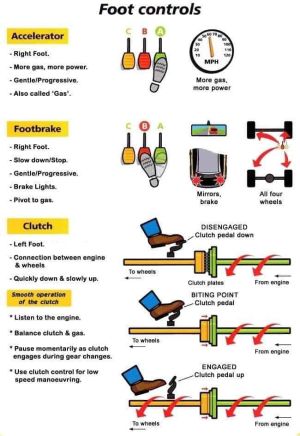Driving
The Dual Nature of Driving: From Ability to Responsibility
Driving, often celebrated as a quintessential human ability, has revolutionized the way we navigate the world. The freedom to traverse vast distances, explore uncharted territories, and embark on spontaneous adventures is a privilege that has reshaped modern society. However, as this ability has evolved, it has also introduced an unexpected set of responsibilities and challenges that extend far beyond the thrill of hitting the open road.
From Freedom to Responsibility: The Changing Landscape of Driving
The act of driving, once embraced as a symbol of liberation, has become increasingly laden with responsibilities. With these responsibilities come concerns about safety, environmental impact, and societal consequences. The weight of these issues is undeniable, as it prompts us to question the balance between individual autonomy and collective well-being.
The Individualistic Approach: A Double-Edged Sword
Individualism has long been heralded as a hallmark of personal freedom, and driving serves as a prime example of this value. The ability to hop into a vehicle and set out on a journey at one's own pace is a cherished aspect of modern life. However, this individualism can also give rise to a sense of detachment from the broader impact of driving. The privilege of driving can easily lead to a disregard for the larger implications on traffic congestion, pollution, and urban planning.
The Promise and Shortcomings of Public Transportation
While public transportation offers an alternative to the challenges posed by driving, its potential is often hindered by various factors. Infrastructure limitations, inefficiencies in scheduling, and inconsistent coverage in certain areas can limit the appeal and accessibility of public transit. The result is a reliance on personal vehicles, contributing to urban sprawl, congestion, and environmental degradation.
Stuck in Traffic: The Hidden Costs
The modern phenomenon of traffic congestion presents an ominous consequence of our reliance on personal vehicles. As more individuals take to the roads, highways become arteries clogged with inefficiency. The lost hours spent in traffic jams take a toll not only on individual well-being but also on the economy at large. Productivity is squandered, fuel is wasted, and stress levels rise—all while the environment suffers the emissions generated by stationary vehicles.
A Call for Balance and Innovation
The challenges of driving as both an essential ability and a responsibility demand a reevaluation of our approach. A holistic perspective emphasizes the importance of individual freedom while recognizing the collective impact of our choices. As we navigate the crossroads between personal autonomy and societal well-being, innovation emerges as a potential bridge. Advancements in electric and autonomous vehicles, coupled with smart city planning, have the potential to reshape the driving experience and mitigate its negative repercussions.
Conclusion: The Road Ahead
The dichotomy between the joy of driving and the burdens it places upon society is a reflection of the complex relationship between individualism and the greater good. Striking a balance requires a nuanced approach that embraces innovation, prioritizes sustainable alternatives, and fosters a collective sense of responsibility. Only by recognizing the broader consequences of our actions can we steer the path towards a future where driving remains a cherished freedom, while minimizing the negative impact it has on our world.
Drunk Driving
Now I am become drunk, driver of cars.
See also: Meows loudly and pukes on your carpet
